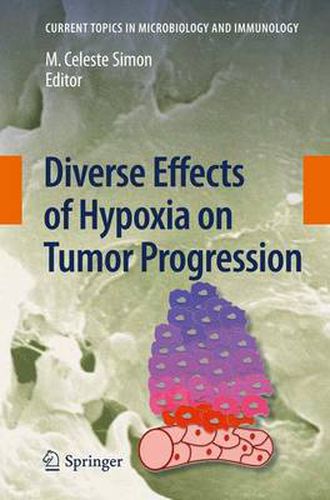Readings Newsletter
Become a Readings Member to make your shopping experience even easier.
Sign in or sign up for free!
You’re not far away from qualifying for FREE standard shipping within Australia
You’ve qualified for FREE standard shipping within Australia
The cart is loading…






This title is printed to order. This book may have been self-published. If so, we cannot guarantee the quality of the content. In the main most books will have gone through the editing process however some may not. We therefore suggest that you be aware of this before ordering this book. If in doubt check either the author or publisher’s details as we are unable to accept any returns unless they are faulty. Please contact us if you have any questions.
Hypoxia, defined as reduced oxygen tension, is a common physiological phenomenon in both normal embryonic development and malignancy progression. Although severe hypoxia is generally toxic for both normal tissue and tumors, neoplastic cells gradually adapt to prolonged hypoxia though additional genetic and genomic changes with a net result that hypoxia promotes tumor progression and therapeutic resistance. Hypoxia promotes cancer progression by regulating various aspects of cancer biology, including radiotherapy resistance, metabolism, angiogenesis and invasion/migration
$9.00 standard shipping within Australia
FREE standard shipping within Australia for orders over $100.00
Express & International shipping calculated at checkout
This title is printed to order. This book may have been self-published. If so, we cannot guarantee the quality of the content. In the main most books will have gone through the editing process however some may not. We therefore suggest that you be aware of this before ordering this book. If in doubt check either the author or publisher’s details as we are unable to accept any returns unless they are faulty. Please contact us if you have any questions.
Hypoxia, defined as reduced oxygen tension, is a common physiological phenomenon in both normal embryonic development and malignancy progression. Although severe hypoxia is generally toxic for both normal tissue and tumors, neoplastic cells gradually adapt to prolonged hypoxia though additional genetic and genomic changes with a net result that hypoxia promotes tumor progression and therapeutic resistance. Hypoxia promotes cancer progression by regulating various aspects of cancer biology, including radiotherapy resistance, metabolism, angiogenesis and invasion/migration